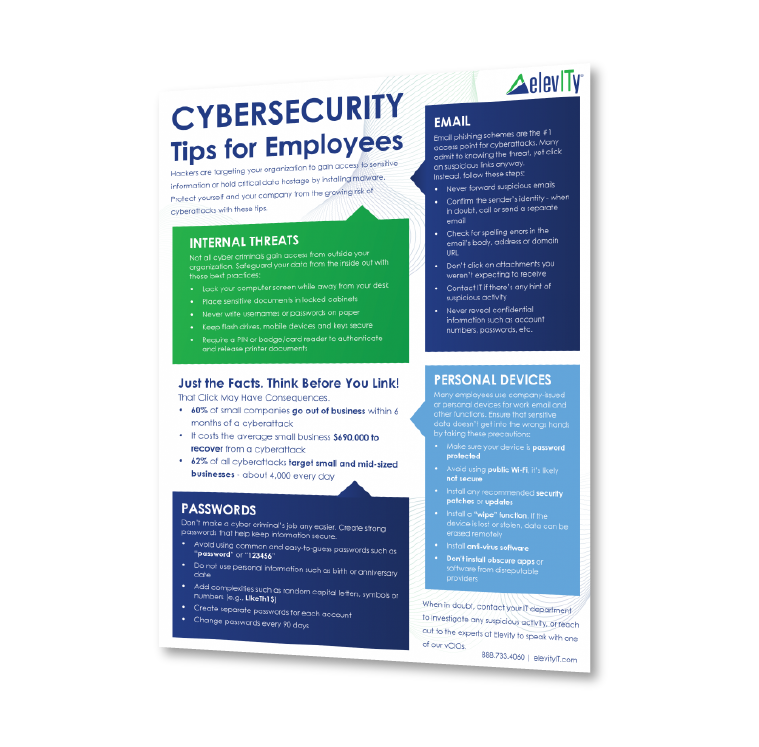If you’re in the market for a Managed Service Provider (MSP), it might seem like it’s hard to get a straight answer about what IT services should cost.
However, there’s a good reason why you can’t just read MSP pricing like a restaurant menu. The simple fact is that not all Managed Services are created equal and comparing them strictly on cost is likely to lead you to the wrong conclusion. While some MSPs may be cheaper than others, be aware that less expensive services are offering less comprehensive services.
Let’s look at the questions you should consider before hiring an MSP in today’s complex business environment.
GET WHAT YOU PAY FOR
You don’t want to hire the cheapest lawyer to represent you in court or the least expensive CPA to do your taxes, do you? So why do companies settle for the cheapest MSP? Managed IT is more than providing software licenses or patching software. It is strategic and tactical deployment of technology to maximize your business’ potential. It should match your technology infrastructure with your organizational goals.
Many organizations hire a Managed Service partner because they cannot afford to have a full-time IT staff or need more IT support than they can achieve with limited in-house support. If your in-house IT capabilities are overwhelmed, a small MSP will offer inexpensive service which includes “break-fix” service and hourly support rates. But these value providers have a limited tool set and lack business technology consulting experience.
Mature MSPs have been in business for 10 years or more and have dozens of support staff and consultants in-house. These companies have documented processes which include onboarding, consulting, service, security and project management. More importantly, a mature MSP can evolve with your organization as your needs change.
CHANGING WITH THE TIMES
To understand what I mean when I say an MSP can grow with your company, consider a new service we offer, Elevity Versions. Versions are a defined grouping of services and solutions that help onboard new staff, deploy new backend data solutions, and quickly add new applications and capabilities.
With the support of our vCIO team, Elevity customers have been able to adapt and mature despite a challenging business environment. For example, we were able to help SACO Foods, a fast-growing consumer packaged goods company serve an international supply chain while managing multiple mergers, onboard new employees and move to the cloud, all without missing a shipment.
To support SACO foods through multiple mergers and expansion, Elevity’s vCIO team helped deploy a cloud migration to support new staff, remote workers and new workflows. This allows SACO to have instant access to data from acquired companies, and harness of the power of the newly combined ERP and Microsoft collaboration tools. This simplifies record-keeping and makes maintaining compliance with food safety regulations easier.
As you can see, Managed Services is more than just keeping a company’s computers up-to-date. An MSP today must ensure your technology infrastructure can scale to meet your needs. Here are the questions I think you should ask before considering price.
- Do you offer a vCIO and is that person dedicated to the vCIO role or also a technical engineer or sales person?
- What is that MSP’s last quarter KPIs for: NPS Score, First Call Resolution, Ticket level CSAT
- Will there be a dedicated representative for our account?
- Do they proactively and consistently offer new ways to improve IT performance?
- How do they protect a network and cloud from modern cyber threats?
- Do they have a SOC available to respond 24/7/365 to cyber attacks?
- Can they provide references and testimonials?
If you’re looking for a specific dollar figure for what an MSP should cost, I can’t help you. But I hope this gives you a better idea of what a full-service MSP can deliver. If you’d like to learn more (and get a price quote), reach out to the Managed Service experts at Elevity.














